My Research post Cambridge Africa PhD on Cocoa and other Plant Viruses Blog Post
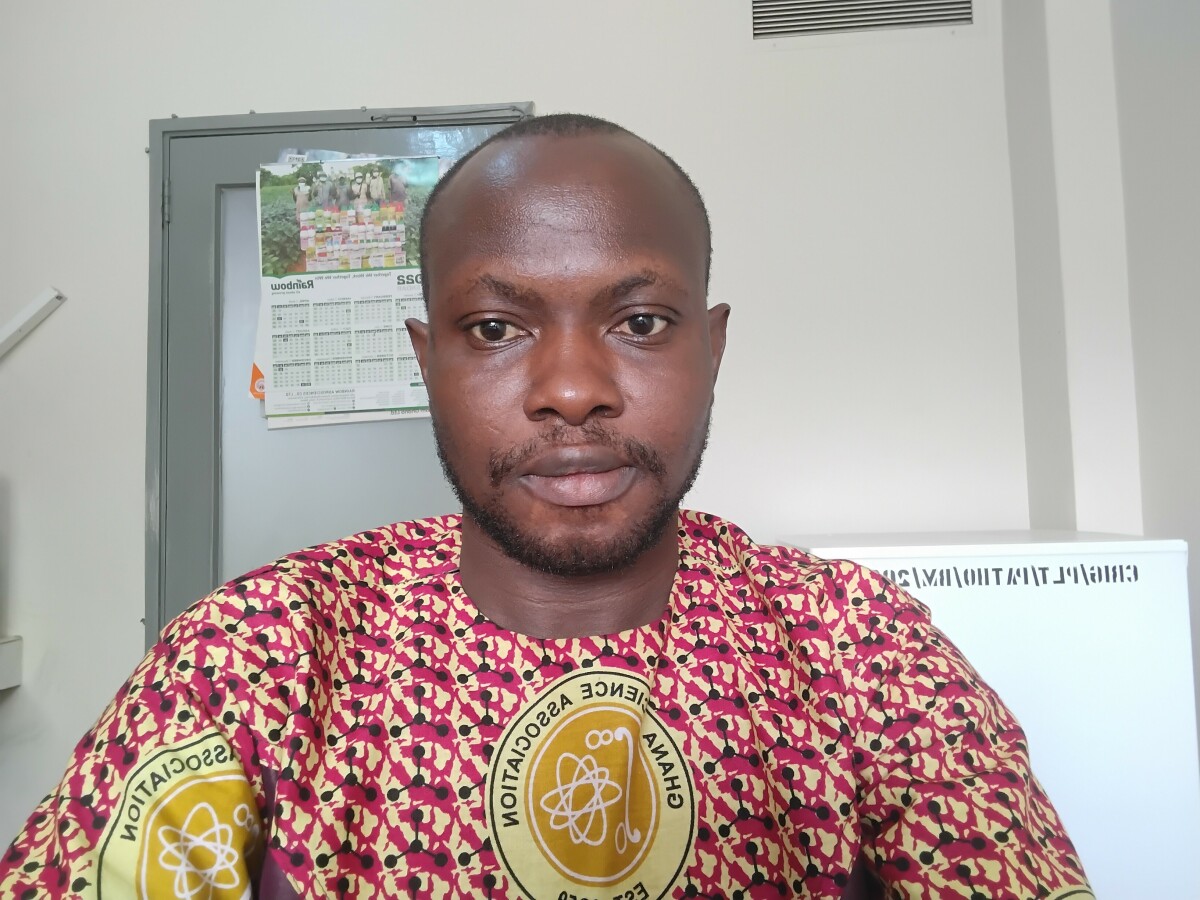
I am Dr. Ebenezer Antwi Gyamera, one of the five scholars in the first cohort of the Cambridge-Africa PhD programme. I received a Cambridge-Africa scholarship in 2015 to undertake doctoral research on induced resistance to aphids and viruses, supervised by Prof John Carr. After graduating in October 2019, I returned to Ghana and started working as a plant virologist at the Cocoa Research Institute of Ghana (CRIG) in February 2021. CRIG is one of the oldest plant research institutions in Ghana, having been established in June 1937 by the British colonial government, predating the formation of modern Ghana by approximately two decades.
A Cacao Tree bearing Cocoa Pods
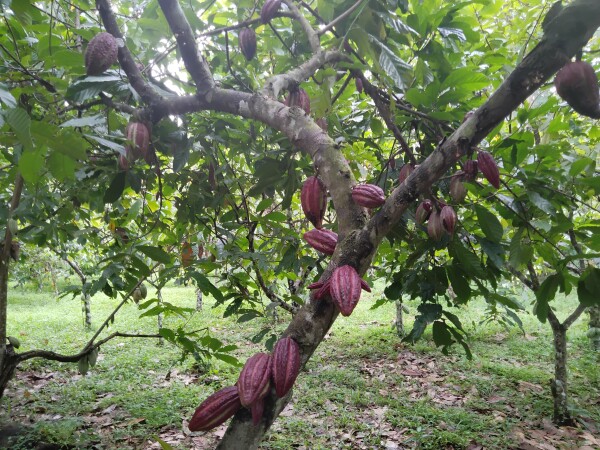
Cocoa, coffee, and shea, are three of the five crops for which CRIG has been granted the national mandate to carry out research pertaining to their agronomy, disease management, and post-harvest processing. The other equally important mandate crops of CRIG are cashew and kola.
The Breaking of Cocoa Pods to Collect the Cocoa Beans for Fermentation
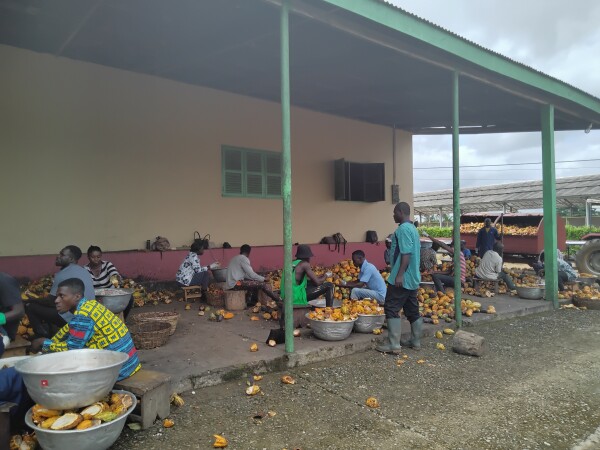
CRIG has a long history of plant virus research in Ghana. The main virus disease being investigated by CRIG virologists is the cacao swollen shoot virus disease (CSSVD) of cacao trees. CSSVD in Ghana is caused by at least six cacao swollen shoot virus (CSSV) species. I recently published a comprehensive review on the history and future of CSSVD research in Ghana. (https://apsjournals.apsnet.org/doi/10.1094/PDIS-10-22-2412-FE). The discovery of the first CSSV anywhere in the world occurred at CRIG in 1939. Since then, much of the research on CSSV has been conducted at the institute, as well as in other West African countries where the disease also occurs. Despite the tremendous work done on CSSV and the disease it causes, it has still not been contained. Currently, the only means of combatting the spread of CSSVD is cutting down infected trees and the apparently healthy trees in physical contact with the diseased trees, just as it was done when the disease was first reported.
A CSSV Infected Cacao Plant
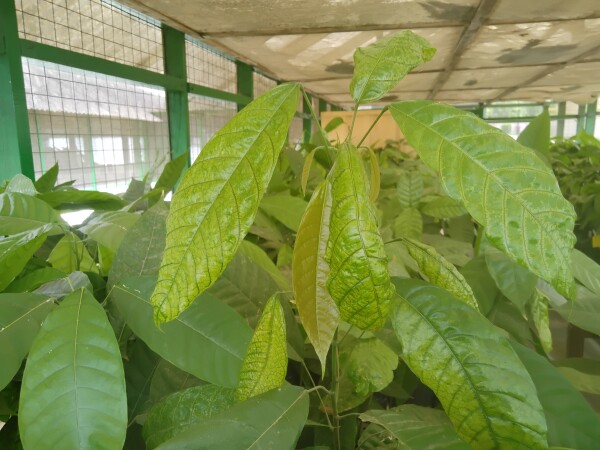
The acquisition of a £9,984.90 Equipment Grant from the Cambridge-Africa ALBORADA programme in 2021 enabled the virology laboratory at CRIG to obtain an ultra-low temperature (-80 ºC) freezer and other items for its research. This made it possible to extract total RNA from leaf tissues for the detection of pathogenesis-related gene expressions during CSSV infection.
My first project at the institute was to assess the efficiency with which mealybugs (vectors of CSSV) are able to obtain and transmit CSSV virions from symptomatic cacao trees, asymptomatic cacao trees and cacao trees that were once symptomatic but are currently not showing any signs of the disease. This was a 1-year project and at the end of the year, we had observed that symptomatic cacao trees were the best sources of the virus for mealybug transmission. However, the vector could also transmit CSSV from asymptomatic trees at a reduced rate. Currently, I have expanded the scope of the project to include the identification of factors required for mealybug-mediated transmission of CSSV. This will involve assessing the role of endosymbionts, CSSV proteins, mealybug salivary proteins, volatile emissions from diseased plants, visual cues, cacao varieties and CSSV titre on virus transmission.
In addition to the transmission efficiency project, I will undertake research on the detection of coffee viruses in Ghana. So far, much of the focus of the virology section has been on CSSVD. Some of the other mandate crops of CRIG may harbour their own virus diseases. My goal in the next 2 years is to find the cause of the virus disease-like symptoms seen on some of the coffee plants on the CRIG research plantations and conduct a nationwide survey to detect and document new virus diseases of coffee plants in Ghana. This will be in addition to my research on CSSV, the main focus of the virology section.
Ripened Coffee Berries
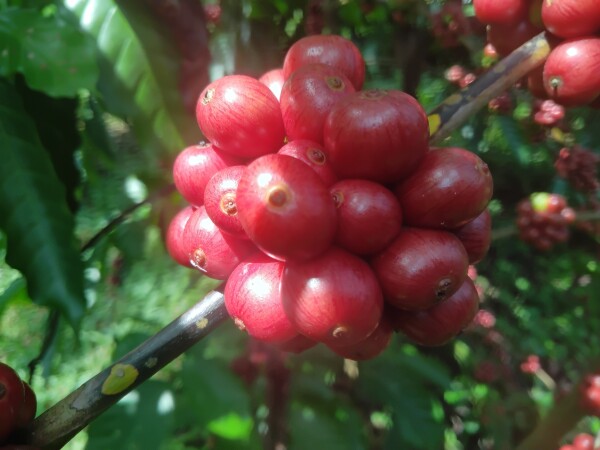
I am very grateful that the Cambridge-Africa programme made it possible for me to undertake my PhD at the University of Cambridge where I received the training needed for the management of plant virus diseases.

